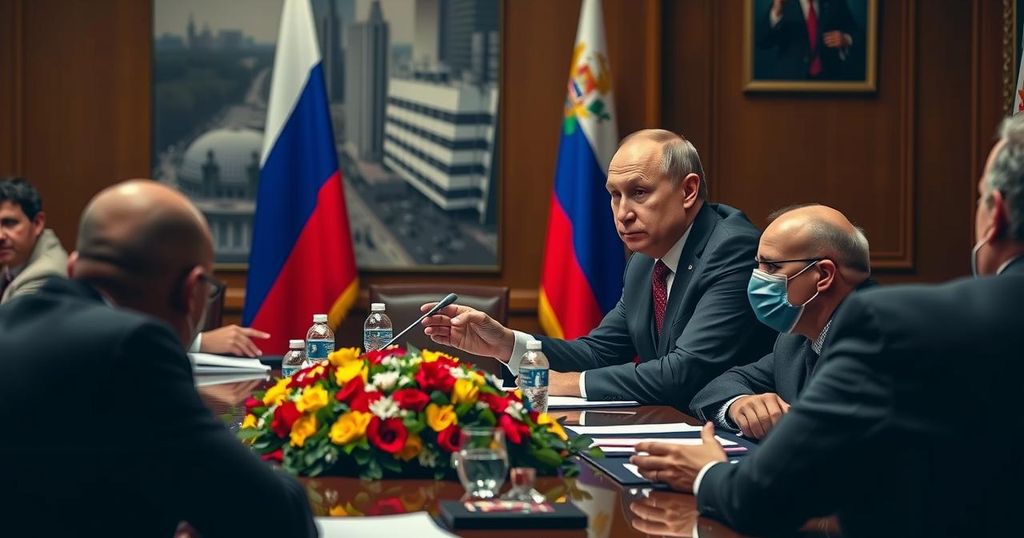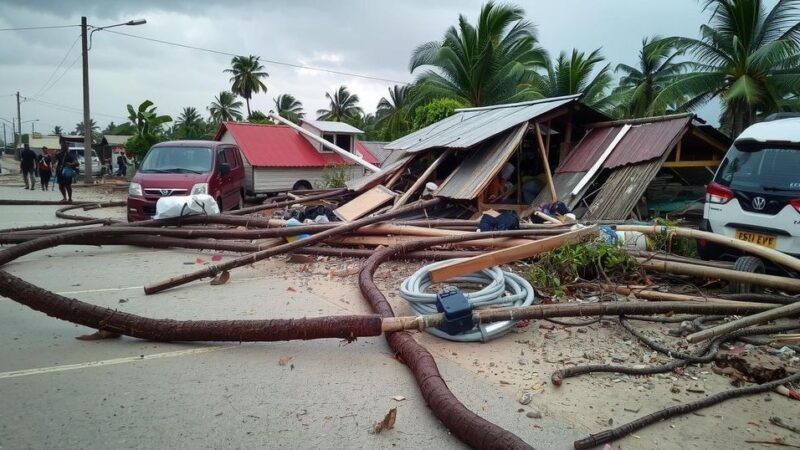At the recent BRICS summit in Kazan, Russian President Vladimir Putin convened leaders including China’s Xi Jinping and India’s Narendra Modi, focusing on enhancing cooperation among emerging economies and developing alternatives to Western-dominated financial systems. The summit addressed the need for collective security and economic strategies while condemning Western sanctions. It showcased the bloc’s growing significance as a counterbalance to U.S. influence, attracting representatives from various countries, including the U.N. Secretary-General, amidst ongoing global tensions.
Russian President Vladimir Putin recently chaired a significant summit of the BRICS group, attended by leaders from China, India, and other emerging economies, as part of his strategy to augment Russia’s global influence in the face of Western dominance. The summit, held in Kazan, underscored the collective objective of the BRICS nations to fortify their financial cooperation and explore alternatives to Western-dominated payment systems amidst escalating geopolitical tensions. President Xi Jinping of China highlighted the importance of de-escalating the conflict in Ukraine, an issue that has heightened security concerns for Russia. Putin utilized this platform to criticize what he termed the West’s “perverse methods” such as unilateral sanctions and protectionism, which he argues perpetuate conflicts rather than resolve them. The BRICS bloc, which has expanded from its original five members to include several others like Iran and Saudi Arabia, convened representatives from 36 nations, showcasing a defiance against U.S. efforts to isolate Russia over its actions in Ukraine. Leaders discussed the need for a new payment system to circumvent sanctions, emphasized their commitment towards cohesive financial strategies, and called for enhanced economic collaboration among member states. In addition, United Nations Secretary-General Antonio Guterres’s participation attracted attention, as he advocated for a comprehensive ceasefire in various global conflicts, including Ukraine. The summit was portrayed by Russian media as a major diplomatic success, demonstrating the BRICS nations’ significance and their challenge to Western hegemony.
The BRICS alliance originally comprised Brazil, Russia, India, China, and South Africa, founded in 2009 to increase economic cooperation among emerging powers. With the geopolitical landscape rapidly shifting, particularly following the Western response to Russia’s actions in Ukraine, the group has sought to position itself as a counterbalance to Western influence, emphasizing the importance of financial independence and security collaboration. The recent expansion of the bloc to include additional countries such as Iran and Saudi Arabia reflects its growing appeal and the desire among developing nations to establish a multipolar global order. The summit served as a platform for discussions on critical issues facing member countries, including regional conflicts and the establishment of a financial system less susceptible to Western sanctions. As global tensions rise, BRICS emerges as a focal point for cooperation in the Global South, aiming to enhance their economic prosperity and political leverage on the world stage.
The recent BRICS summit, presided over by President Putin, illustrates the bloc’s ambition to leverage collective strength against perceived Western dominance and to foster financial independence. The discussions centered on crucial topics such as establishing alternatives to Western payment systems, maintaining regional stability, and enhancing diplomatic relations among member states. As the global order continues to evolve, BRICS seeks to assert its influence, marking a significant shift in international relations, particularly concerning the dynamics between emerging economies and traditional Western powers.
Original Source: apnews.com






